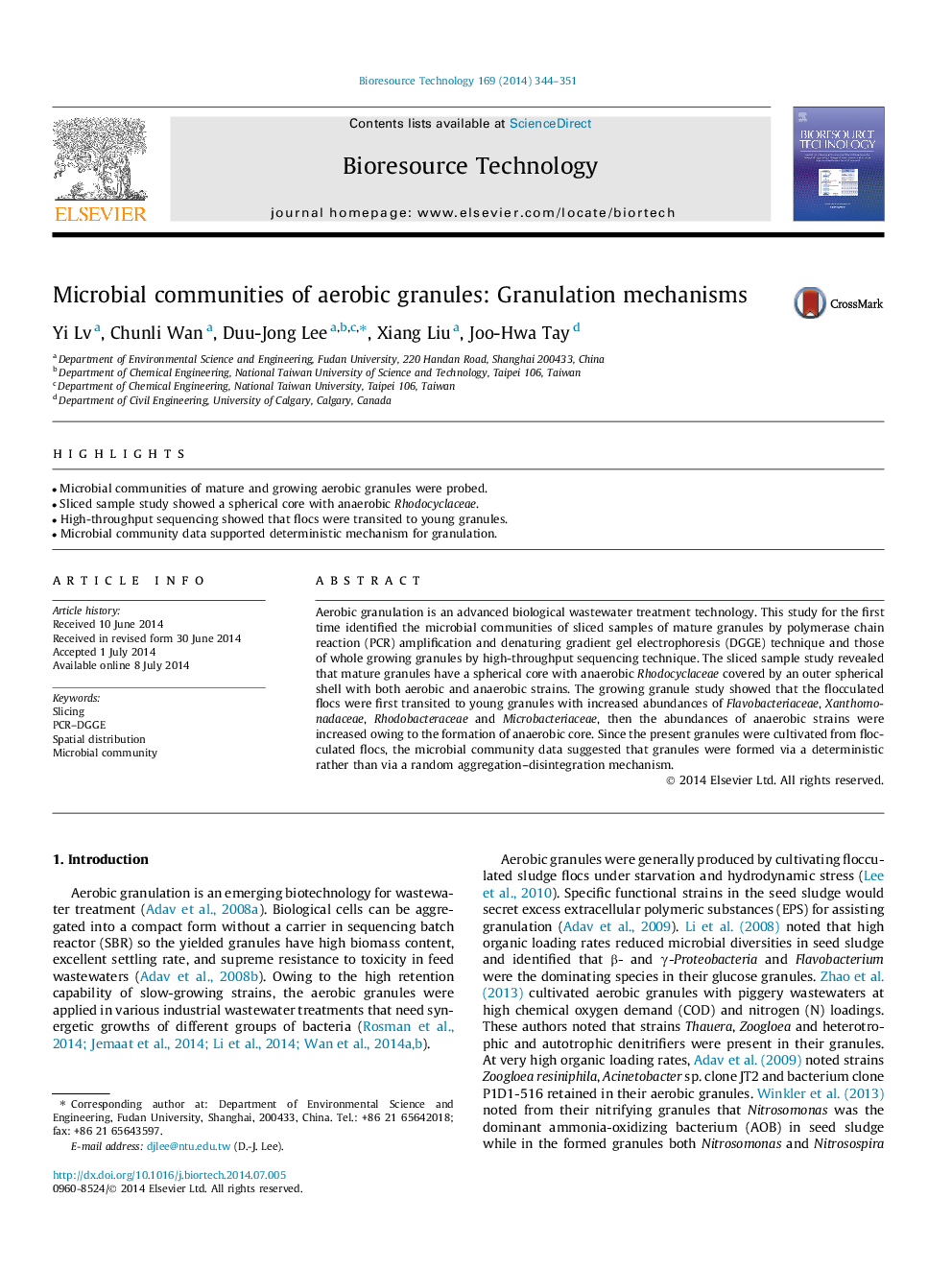| Article ID | Journal | Published Year | Pages | File Type |
|---|---|---|---|---|
| 680611 | Bioresource Technology | 2014 | 8 Pages |
Abstract
Aerobic granulation is an advanced biological wastewater treatment technology. This study for the first time identified the microbial communities of sliced samples of mature granules by polymerase chain reaction (PCR) amplification and denaturing gradient gel electrophoresis (DGGE) technique and those of whole growing granules by high-throughput sequencing technique. The sliced sample study revealed that mature granules have a spherical core with anaerobic Rhodocyclaceae covered by an outer spherical shell with both aerobic and anaerobic strains. The growing granule study showed that the flocculated flocs were first transited to young granules with increased abundances of Flavobacteriaceae, Xanthomonadaceae, Rhodobacteraceae and Microbacteriaceae, then the abundances of anaerobic strains were increased owing to the formation of anaerobic core. Since the present granules were cultivated from flocculated flocs, the microbial community data suggested that granules were formed via a deterministic rather than via a random aggregation-disintegration mechanism.
Related Topics
Physical Sciences and Engineering
Chemical Engineering
Process Chemistry and Technology
Authors
Yi Lv, Chunli Wan, Duu-Jong Lee, Xiang Liu, Joo-Hwa Tay,
